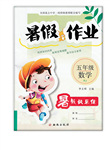题目内容
I wished I had known earlier the fact that I was a low achiever because there was a reason beyond my control. Then I needn’t have worked so hard in my late twenties and early thirties. But I just didn’t know that. I was writing and writing. I was working for no other reason than to hear people praise me.
Most people who go through university read at least twice as fast as I do. I can never tell my left from my right. I avoid dialing a telephone if I can help it, because I sometimes have to try three times before getting the number right. I hear that recording “The number you have reached is not in service” more than any man on earth.
Despite my weaknesses I view my dyslexia(difficulty in reading) as a gift, not a curse(诅咒). Many dyslexics are good at right brain, namely abstract thought, and that is what my king of creative writing is. I’m starting with nothing and coming up with something that didn’t exist before. That’s my strong point. I owe my career to Ralph, Salisbury, my writing instructor at the University of Oregon, who looked past my misspellings and gave me encouragement and hope. I just carried on and never looked back. I’m also very “visual”. This means nothing in school, but when I write books or scripts, I’m seeing everything in my imagination. I write quickly. I go like the wind and can get up to 15 pages a day. Writing is not the problem. I have no problem downloading; it is inputting where things get messed up.
The real fear I have for dyslexics is not that they have to struggle with messy input, but that they will quit on themselves before they finish school. Parents have to create victories whenever they can, whether it is music, sports or the arts. You want your dyslexic child to be able to say, “Yeah, reading is hard. But I have these other things I can do.”
1.According to the passage we know that________.
A. The author had known he was a low achiever since he was a little child
B. The author didn’t work very hard on writing in his late twenties
C. The author owed his dyslexia to his laziness in the childhood
D. The author worked hard for people’s praise
2.From Paragraph 3 we can know that ______
A. The author was grateful to his writing instructor
B. The author often complained about his dyslexia
C. The author had trouble with both inputting and outputting.
D. Having problem in inputting, the author wrote slowly.
3.Which of the following proverbs can best summarize the main idea of the passage?
A. He who laughs last laughs best.
B. Where there is a will, there is a way.
C. Reading enriches the mind.
D. When God closes a door, somewhere he opens a window.
4.What kind of man is the writer?
A. Open-minded and optimistic
B. diligent and generous
C. clever but selfish
D. kind but useless
1.D
2.A
3.D
4.A
【解析】
试题分析:本文主要讲述了作者虽然在阅读方面有缺陷但是却不断通过自己的努力不断地写作最终获得了成功的故事,揭示了上帝在给你关上一些门的同时却会为你开启另一些门。
1. I needn’t have worked so hard in my late twenties and early thirties. But I just didn’t know that. I was writing and writing. I was working for no other reason than to hear people praise me.可知:作者不停地写作为了听到人们的赞扬。故选D。
2. owe my career to Ralph, Salisbury, my writing instructor at the University of Oregon, who looked past my misspellings and gave me encouragement and hope.可作者把他的写作生涯归功于他的写作老师,他的老师不在乎它的缺陷而且给了他很多鼓励和希望。故选A。
3. want your dyslexic child to be able to say, “Yeah, reading is hard. But I have these other things I can do.可以得知:对于作者来说阅读虽然很难但是他可以找到其他所擅长的。故选D。
4.
考点:考查记叙文阅读。

 暑假作业暑假快乐练西安出版社系列答案
暑假作业暑假快乐练西安出版社系列答案